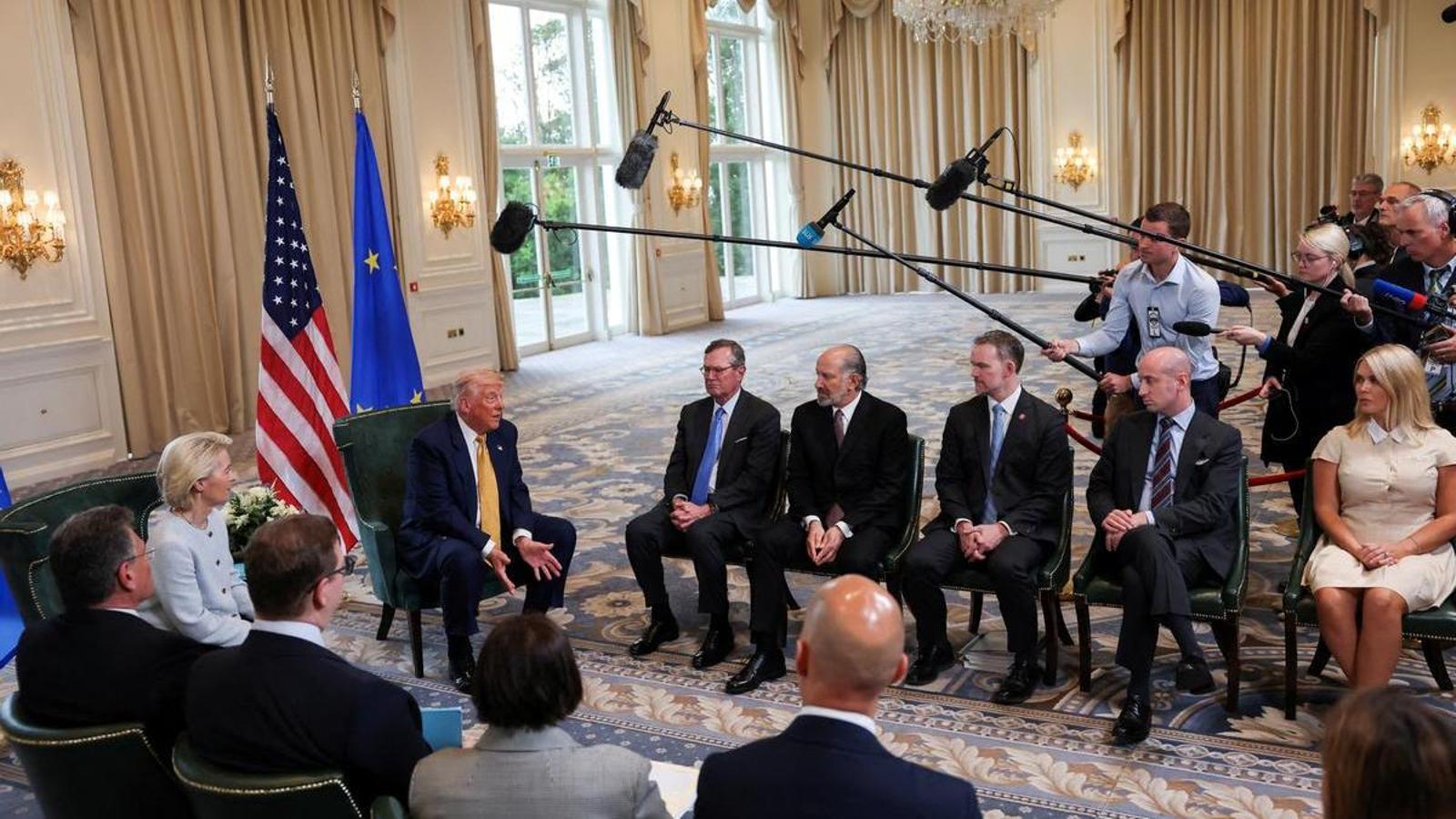European "weakness" in the face of Trump's tariffs
An event at the Circle of Economy analyzes trade relations between the EU and the US in the wake of the trade war initiated by Washington


Barcelona"From an economic standpoint, it's certainly not a good agreement, but it's more or less tolerable. The political cost is another matter." With these words, he described the trade agreement between Brussels and Washington Ignacio García Bercero, analyst at the think tank Bruegel and for 35 years EU trade negotiator. At an event this Thursday at the Círculo de Economía (Circle of Economy) on the impact of tariffs, García Bercero lamented the European Commission's strategy in the face of the aggressive trade offensive by the US government under Donald Trump: "It has given a certain image of weakness to the EU," he opined, since the EU has ended up signing an agreement that is "just an agreement."
At the same event, Joan Tristany, president of the Association of Internationalized Industrial Companies (Amec), which brings together some of Spain's leading industrial exporting companies, noted that, for Catalan and Spanish companies, the United States is not the main export market, but it is of great importance. "It is a market with high margins," he explained, in the sense that companies operating there tend to obtain larger profits than in other countries. This also makes it a market that demands "a large investment of time and money," he added. Furthermore, the tariffs have a secondary effect because they do impact German and French industries that export heavily to the US and rely on Catalan companies as suppliers.
That is why, in García Bercero's opinion, the EU should have taken a longer-term view. "The key moment was the day after the Liberation Day", when Trump announced a huge round of tariffs which shook the financial markets. Treasury Secretary Scott Bessent convinced Trump to soften his stance and open negotiations with governments around the world.
"The Commission suspended all retaliatory measures," García Bercero asserted—in international law, retaliation is the equivalent response to a measure taken by one state against another—and opted solely for "negotiation," although Washington never completely eliminated the tariffs. The dialogue initiated by Brussels with the White House resulted in the agreement reached in July by Commission President Ursula von der Leyen and Trump in Scotland. According to García Bercero, with this agreement, the EU obtained "the most favorable deal" among all the agreements recently signed between Washington and other countries, with the exception of some countries with which the US already had a trade surplus, such as Australia. The agreement reached by Von der Leyen is "comparable to what was obtained by Japan, South Korea, and, after much effort, Switzerland," and similar to that of the United Kingdom. It has "problems in the steel and aluminum sectors," but unlike the treaties with both Asian countries, it includes European investment commitments in the United States that "are clearly not binding," but rather "something on paper," he noted.
Weakness and lack of unity
However, the former negotiator believes the EU could have gotten more from Trump because he sat down to negotiate "without a pre-planned retaliation strategy" to use as leverage should the carrot of dialogue fail. However, it's also important to consider that, unlike the trade tensions during Trump's first term, European countries are now less united and face the added problem of Ukraine: "We have a war on our border, and the possibility that the US will withdraw its defense support has further complicated the negotiations," Tristan emphasized. Another option for the EU would have been to form a coalition with Canada, Japan, and South Korea—adding the UK is "impossible," García Bercero said—to challenge the tariffs before the World Trade Organization (WTO) so that it would initiate arbitration proceedings that would ultimately result in a ruling ordering them to punish the US until they backed down. This strategy was risky and, moreover, meant enduring significantly higher trade tariffs for sectors like steel and automotive for approximately a year than those ultimately imposed through bilateral agreements. "On an economic scale, it would have been somewhat more costly, but politically it would have been better," because it would have sent a message of unity and strength internationally to confront Trump.
